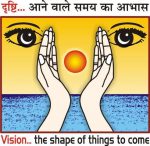The Power of Analytical and Critical Thinking: Nurturing Essential Skills for the Jobs of Tomorrow
- Preface:
- Introduction to the importance of analytical thinking and critical thinking skills in academic and professional success.
- Overview of the book’s purpose and intended audience.
- Introduction:
- Definition and explanation of analytical thinking and critical thinking.
- The significance of these cognitive skills in problem-solving, decision-making, and learning.
- How analytical thinking and critical thinking contribute to personal growth and development.
- Understanding Cognitive Skills:
- Explanation of cognitive skills and their role in mental processes.
- Overview of different cognitive skills, including analytical thinking, critical thinking, creativity, problem-solving, etc.
- Interconnections and relationships between cognitive skills.
- Foundations of Analytical Thinking:
- Introduction to the foundations of analytical thinking.
- The scientific method and its application in analytical thinking.
- Logic and reasoning: principles and strategies for effective analysis.
- Developing Analytical Thinking Skills:
- Identifying and defining problems or questions for analysis.
- Gathering and organizing relevant data and information.
- Applying appropriate analytical tools and techniques.
- Drawing conclusions and making informed predictions based on analysis.
- Foundations of Critical Thinking:
- Introduction to the foundations of critical thinking.
- Evaluating arguments: logic, validity, and fallacies.
- Assessing evidence and credibility of information.
- Recognizing biases and assumptions.
- Developing Critical Thinking Skills:
- Asking critical questions and challenging assumptions.
- Analyzing and evaluating different perspectives.
- Making well-reasoned judgments and decisions.
- Enhancing communication and argumentation skills.
- Integrating Analytical and Critical Thinking:
- Exploring the synergy between analytical thinking and critical thinking.
- How these skills complement each other in problem-solving and decision-making.
- Examples and case studies demonstrating the application of both skills.
- Real-World Applications:
- Showcasing practical examples of how analytical thinking and critical thinking apply in various fields and professions.
- Highlighting the importance of these skills in academic studies, research, and career success.
- Developing and Practicing Cognitive Skills:
- Strategies for developing and honing analytical thinking and critical thinking skills.
- Promoting metacognition and self-reflection.
- Incorporating exercises, activities, and practical tips for continuous improvement.
- Conclusion:
- Recap of key concepts and skills covered in the book.
- Encouragement for ongoing development and application of analytical thinking and critical thinking skills.
- Final thoughts on the value of these skills in personal and professional growth.
- Jobs of Future – Skills required
- Analytical Thinking Skills
- Foundations of Analytical Thinking
- Developing Analytical Thinking Skills
- Critical Thinking Skills
- Foundations of Critical Thinking
- Developing Critical Thinking Skills
- Differences
- Real-World Applications:
- Showcasing practical examples of how analytical thinking and critical thinking apply in various fields and professions.
- Highlighting the importance of these skills in academic studies, research, and career success.
- Understanding Cognitive Skills
Analytical thinking breaks down complex problems into manageable parts, unraveling the mysteries of truth. – Principia Mathematica
Russell was a philosopher, mathematician, and logician who made significant contributions to analytical philosophy. His work “Principia Mathematica” (co-authored with Alfred North Whitehead, 1910-1913) aimed to establish a logical foundation for mathematics and formal logic.
Critical thinking is the ability to question and scrutinize our own intuitions and thoughts, allowing us to make more accurate and reasoned judgments.” – Thinking, Fast and Slow
“Thinking, Fast and Slow” is a groundbreaking book by Nobel laureate Daniel Kahneman that explores the two systems of thinking: intuitive and deliberate. It offers profound insights into human decision-making, biases, and the importance of critical thinking in navigating the complexities of our minds.
